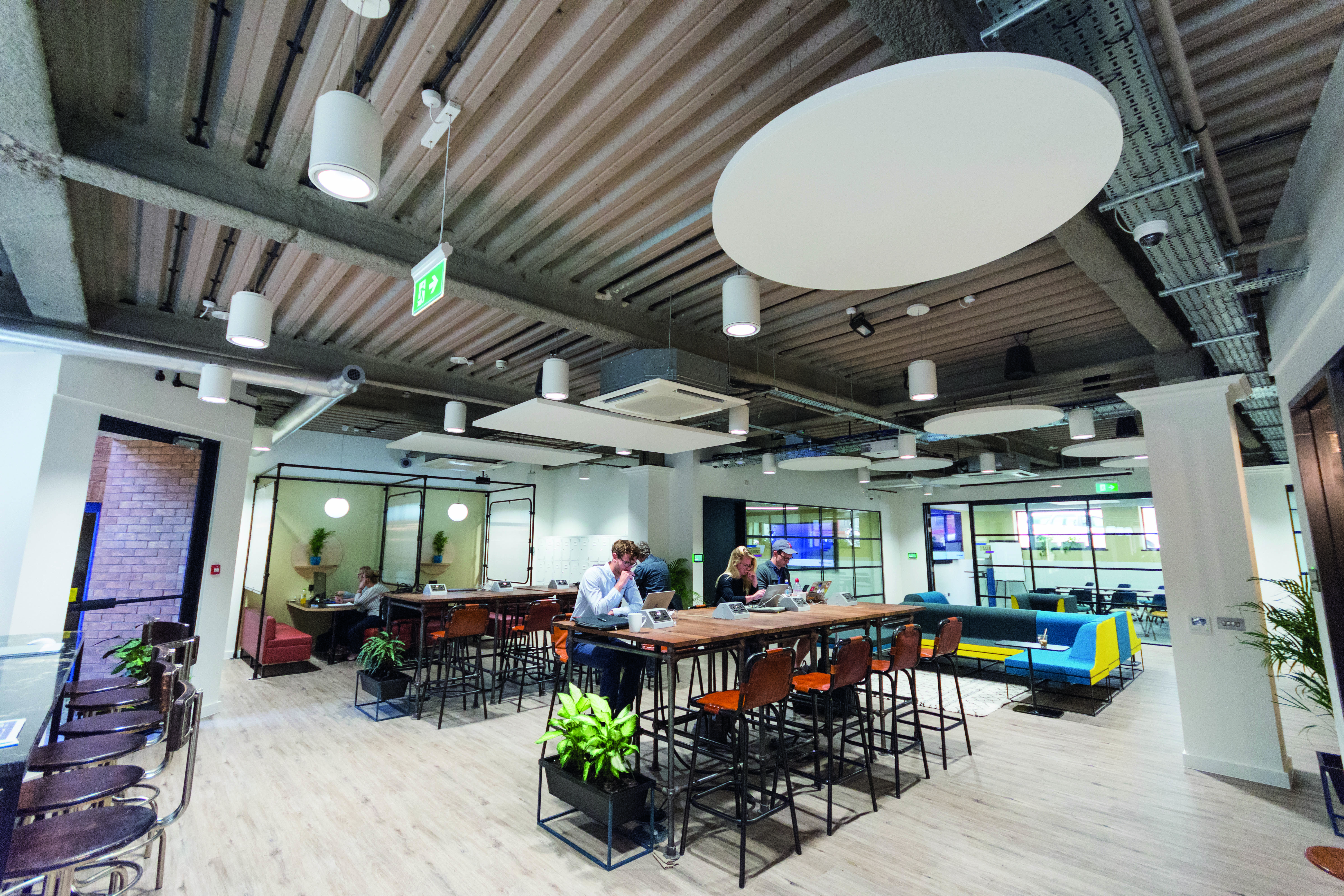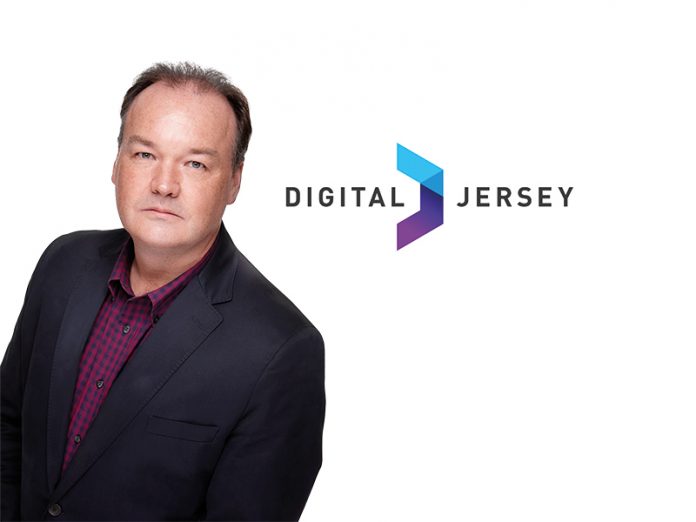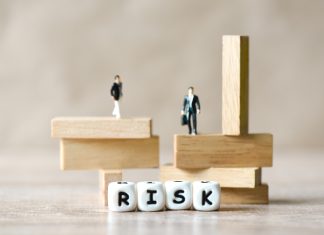Interview with Tony Moretta, CEO of Digital Jersey
The European Business Review caught up with Tony Moretta, the CEO of Digital Jersey. Jersey has just been ranked third in the world for its internet speeds, but it’s not just its world-class infrastructure that Tony is rightly proud of.
Thank you so much, Mr Moretta, for meeting with us today. To start with, for a successful business leader like you, what are the best morning routines to jump-start a busy day and your quick tips for improving productivity for a day’s work?
I’m not a morning person, sadly, but to help me get up and about, I tend to start my day by going straight onto my phone to see what’s happening in the news on- and off-island. I also subscribe to a number of regular feeds about AI, fintech and so on, which I try to read before the day starts. I usually have a breakfast meeting to make the most of the day before it fully gets going. In terms of my own productivity, I don’t always succeed in this, but I really do try and leave gaps in my diary for thinking time. It’s very easy in a job like mine to spend your whole day in meetings. Leaving time in-between for thinking about things or for catching up with my team to support them is important to me. I’m not very strict on it but at least I try! In my working career of 30 years, I’ve never had a more consistently busy time in my career than the past four years I’ve been in Jersey. The breadth and depth of what we do means we’re across a wide range of things from education to fintech to digital health, as well as IoT and e-government.
We see that you have a very successful career journey, and you became the CEO of Digital Jersey a few years ago. Would you tell us what are the important highlights of your professional career so far?
I spent seven- and-a-half years working for a bank after graduation. I have no regrets, as it enabled me to get a general management grounding and fill gaps in my own skills base. It also gave me an opportunity to get into what’s now called fintech – business and product development roles within both tech and banking. I think that move was key; getting into tech in banking, as well as payment and smart cards. From there, making a move from financial services into the TV industry was significant for me, as it took my business and product development skills to another tech area. After that were a number of years in digital TV and radio, and then into mobile telephony. It was there I spent three years building a joint venture between three large telcos, taking it through the European Commission. I always enjoy looking at different aspects of the commercial world. In that case it was a major competition issue, getting it through regulators. I always say coming to Digital Jersey was a way of pulling together all those different strands of my career: different industry sectors, different skills. I am lucky enough to have all that in one job. In fact, I like to tell people I have an eclectic CV which qualifies me for absolutely nothing except this job!
Digital Jersey was established with the aim of supporting the economic growth of Jersey, focusing on Jersey-based digital industries. From the year it was established, how do you find Jersey’s digital sector then and now?
The biggest change has been cultural, with an acceptance that digital is a major part of Jersey’s future and not just an add-on. Indeed, it’s not only a separate sector of the economy, but rather fundamental to the way the island works, whether that’s government or agriculture or tourism, as well as the finance industry. If I look at where Jersey is today and how digital is supported, a recent increase in funding for Digital Jersey and the new Digital Jersey Academy are evidence that Jersey is investing in a digital future.
Recently, Digital Jersey has been named as Digital Brand of the Year at Citywealth Awards. What do you think are the outstanding features that set you apart from your competitors?
From the first moment I started to engage with Jersey, before I had taken up my job, it struck me how Jersey generally punches above its weight. We do that at Digital Jersey as well. I like to think we project a very strong brand presence. We are able to surprise people with what’s going on in Jersey, including the island’s 100%-fibre network. My constant joy is sitting in front of someone who doesn’t know much about Jersey, or has preconceptions of a quiet tourism destination, and surprise them because we have a lot of things that people say they had no idea Jersey did. We spent a lot of years building the foundations for that at Digital Jersey and I’m delighted it’s being recognised on- and off-island. We need to do even more to get that message out. One example of that is the government’s External Relations team building up relationships around the world – but not just based on our finance or tourism or agriculture industries, it’s about our digital industry as well.

Digital Jersey has launched the Digital Jersey Hub and Digital Jersey Xchange in order to support and nurture Jersey’s tech community. Would you tell us about your vision for these two initiatives, how do they operate and how do you strategise in gaining members?
The Digital Jersey Hub has been key to creating a strong digital community. Though it’s counterintuitive that in a digital world you need physical spaces for people to work, collaboration in the Hub has seen some fantastic companies start up there, fantastic speakers make presentations and a whole host of fascinating events. It’s been our shop window for ambassadors around the world who’ve come to Jersey representing countries such as Estonia, Germany and the Philippines. And now we’re seeing even more of this, thanks to investment from government into the repurposing of the Hub, which has now doubled in size, has more space for start-ups, for office space, and desk space, there are more meeting rooms and areas for collaboration and events. Indeed, the Hub has gone from being quiet to packed out, and doubling in size. When you look at its use, it’s gone from a meeting place for techies to a place where the public and private sectors can meet to solve problems together. For example, the development of our digital health strategy, with industry and government working together, happened at the Hub. Our membership also includes a strong showing from the financial services sector, with the rise of fintech increasing cooperation between the tech and finance industry. If you look at our enterprise membership list you’ll see not only the tech companies, but also utilities, banks, accountancy and law firms, all recognising that digital is not just a sector in itself. A digital economy includes all those areas. Elsewhere at our new IoT space, the Digital Jersey Xchange, we were consciously trying to create a space where, instead of meeting rooms and desks, it was more about people working on physical and hands-on tech. We’ve seen companies use the space, but also events with schoolchildren developing projects – including one creating artificial limbs! It’s about people getting together to learn, collaborate and develop.
Digital Jersey strives to make Jersey a leading test hub for future digital innovations. How do you prepare your organisation and the Jersey-based digital companies in reaching this goal? What are your short- and long-term plans?
Jersey is a great sandbox, because we are a closed environment as an island of 45 square miles. We’re also a closed user group of just over 100,000 people. It means we’re an excellent test bed with fantastic infrastructure, including that 100%-fibre network, our three 4G networks, and having the third-fastest average internet speeds in the world helps a lot. But it’s not just about digital connectivity, it’s also about corporate connectivity and our island’s network of companies. What’s great about Digital Jersey’s position – sitting at the interface between the public and private sectors – is we have relationships with every government department and all sectors of industry, so we can connect those off-island who want to work with somebody on-island very quickly. We can bring together the Jersey economy into a ready-made “Jersey PLC”. As well as the fibre network, there’s the power grid and the other utilities. It’s a proposition that’s attractive to people. We also have fewer layers of decision-making, so you can get projects off the ground faster. A recent example is the air-quality sensor company that worked through Digital Jersey to access the right resources in both the private sector and government to build an air-quality sensor network. We want people to think of Jersey as the best place for infrastructure and the easiest place to test things.
Digital Jersey also provides business support to local entrepreneurs, corporations and investors. In your view, what are the most significant challenges facing digital start-ups and what would you advise for them to attain a higher rate of success?
Jersey has some great advantages over other locations – connectivity being a major one. Organisations like Digital Jersey, and a location like the Hub are supported by government, which means we have a great foundation. But we also face the same challenges as other jurisdictions, in terms of skills, investment and support. These are all areas we’re addressing. The Digital Jersey Academy will mark a step change in our ability to develop homegrown skills. We can support companies accessing talent on- and off-island. We can introduce start-ups to companies that they can work with, and to people who may be prepared to invest and support in other ways. It’s all a big part of building up a community, which means there is always help on hand from the Digital Jersey team and the wider digital community.
Employee satisfaction and well-being are being prioritised by most companies, as these account for their success. How do you make sure that your employees retain a balance between work and life and what are your initiatives in looking after their well-being?
We’re fortunate that Jersey is a great place for anyone to have a good work-life balance. It’s a short commute, we live and work in a tourist destination with amazing scenery and things to do. I also feel very lucky to have a diverse team in terms of age, gender, background, qualifications, and industry. And because we are relatively unusual in that we have a massive variety of projects in the organisation, from health to IoT to transport to fintech, and so on, there’s a lot to get enthusiastic about. But I do recognise it is about helping the team prioritise what they focus on, so they don’t take on too much in one go. I am also aware I don’t always practise what I preach! A big part of this role is passion – it’s something I value above most things. I have a team that’s passionate about what they do, so they’ll often go the extra mile when required, and we try to spread that passion across the wider community.
What are your views about the important digital trends to watch out for in the coming years?
We have to be careful about not getting caught up in whatever is being hyped at any moment. There’s been a lot of hype around blockchain recently, without, it seems to me, an understanding of its implications. So we need to think beyond the technology itself. AI and automation will have a profound impact on the way technology works, the wider economy, the workforce and, in turn, the need for upskilling in the workplace to prepare people for changes in roles. A big part of this is the way we use data. It is becoming increasingly important to the tech world to think about that. If you consider digital health, you’ll hear people talk about Apple watches and other devices, but it’s really about the right people having the right data at the right time. The same applies with AI. There used to be a saying at the start of computing – “GIGO”, or “garbage in, garbage out”. If you don’t have the right data, you won’t make the right decisions. Other tech areas which interest me are around the idea of building a real connected society. IoT has developed faster than many people thought and there are many advantages of a connected society. But it all boils down to this thought: it’s about having the right data for evidence-based decisions to improve business and improve all our lives.
On a lighter note, we are interested to know what are the top things or activities a high-calibre business leader like you does to recharge during your day-off from work?
Ha! I’ve always been a media junkie in my personal life, so, if I have to go into my real comfort zone, it would be putting on a good movie. I love my Netflix and Amazon Prime, but I still have a weakness for physical media. I still buy CDs and Blu-rays, now 4k ones. I also like my gadgets and my latest is an all-electric moped. It will enable me to get some fresh air and to explore the sights of Jersey, where it’s the perfect way of getting around.
What does success mean to you? What would be your advice for future leaders/executives who want to advance their career in the tech/digital industries?
Success for me in this role is seeing a thriving digital industry in Jersey, with more tech companies creating more jobs, with more skilled people working here on a daily basis. But it’s also about having a more-digital economy. Finance, tourism and agriculture industries, which are good users of tech to improve workers’ lives and productivity, which, in turn, will support the economy. I’m not sure I’m one to give advice to others, but one thing you do need is an intellectual curiosity to learn about things coming along. What I enjoy doing is not just developing tech for tech’s sake, but instead looking at industry problems and asking what part tech can play in solving those problems. The successful technologies are the ones that do that, and aren’t simply solutions looking for problems.
Thank you very much Mr Moretta. It was a pleasure speaking with you.
About the Interviewee
 Tony Moretta, the CEO of Digital Jersey, is responsible for delivering the organisation’s long-term economic, social and reputational objectives together with meeting annual business plan goals, to develop Jersey as a recognised digital jurisdiction. Mr. Moretta has over 20 years of senior management experience across a wide range of digital industries, including mobile, online, broadcast, payments, advertising and data analytics. Before joining Digital Jersey, he delivered a number of projects in the digital space for both the UK Government and major private sector companies. He was one of the founders of Weve, a joint venture between EE, O2 & Vodafone in mobile marketing, payments and data analytics.
Tony Moretta, the CEO of Digital Jersey, is responsible for delivering the organisation’s long-term economic, social and reputational objectives together with meeting annual business plan goals, to develop Jersey as a recognised digital jurisdiction. Mr. Moretta has over 20 years of senior management experience across a wide range of digital industries, including mobile, online, broadcast, payments, advertising and data analytics. Before joining Digital Jersey, he delivered a number of projects in the digital space for both the UK Government and major private sector companies. He was one of the founders of Weve, a joint venture between EE, O2 & Vodafone in mobile marketing, payments and data analytics.




































